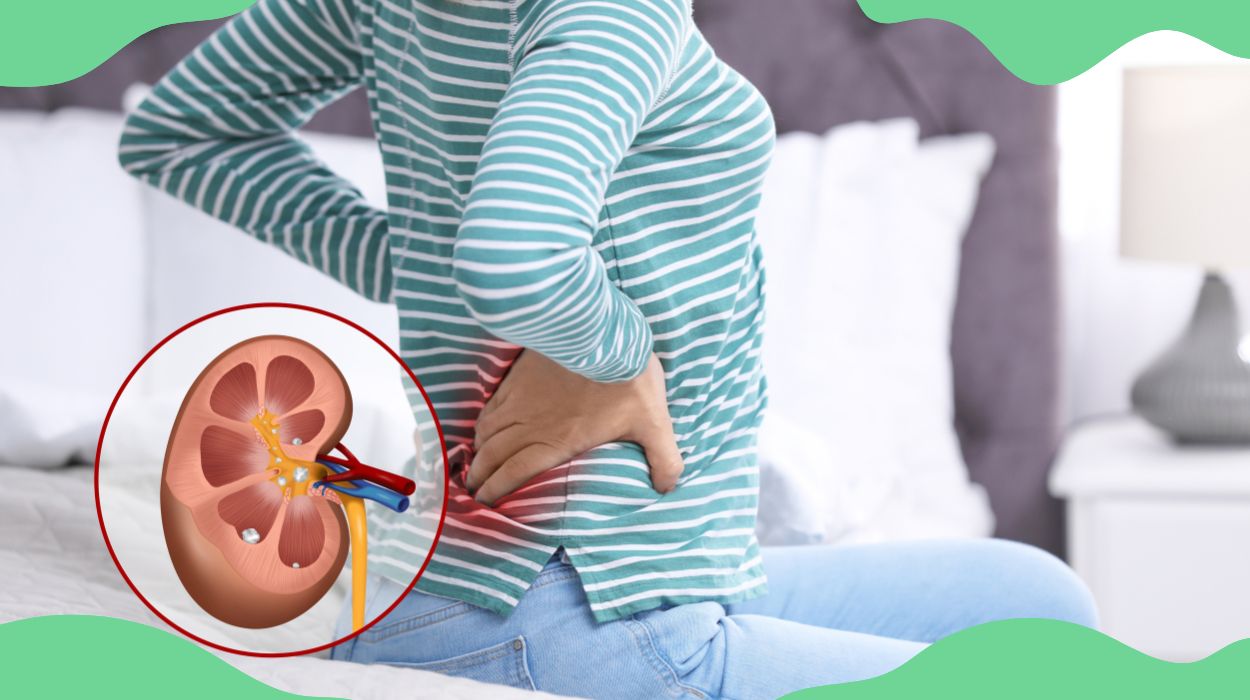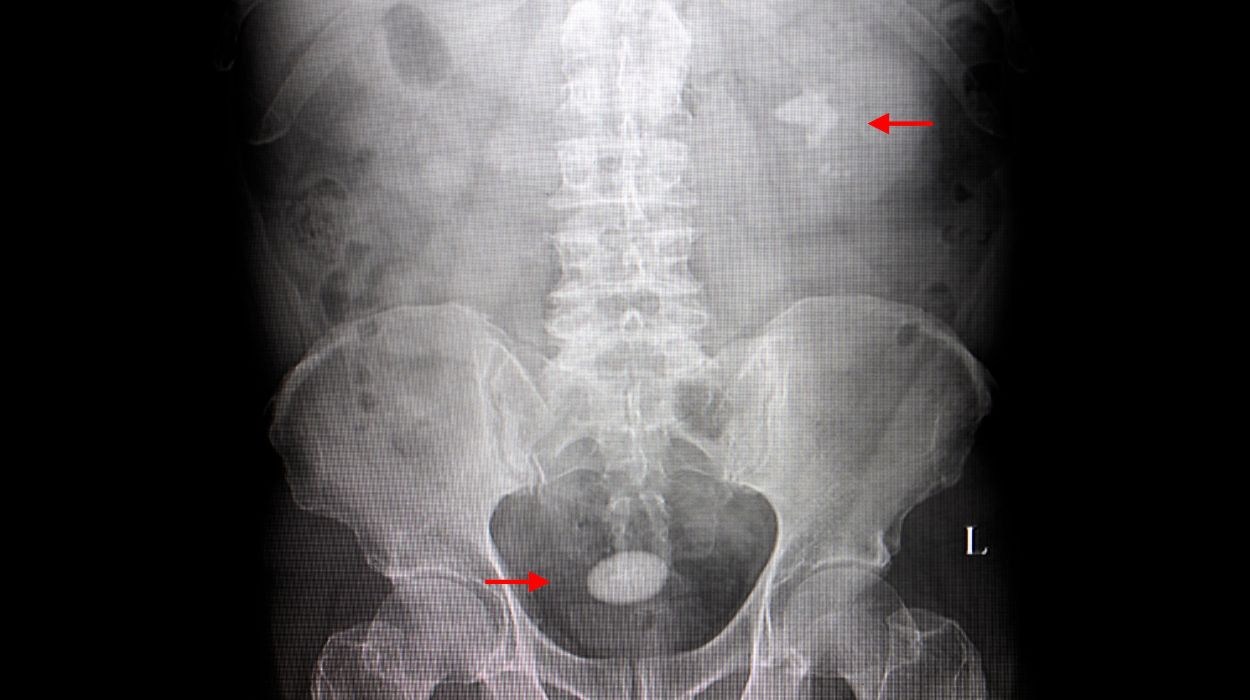 Expert's opinion
Expert's opinion
Expert's opinion
The article is a subjective view on this topic written by writers specializing in medical writing.
It may reflect on a personal journey surrounding struggles with an illness or medical condition, involve product comparisons, diet considerations, or other health-related opinions.
Although the view is entirely that of the writer, it is based on academic experiences and scientific research they have conducted; it is fact-checked by a team of degreed medical experts, and validated by sources attached to the article.
The numbers in parenthesis (1,2,3) will take you to clickable links to related scientific papers.
Kidney Stone Removal Without Surgery: 2 Treatment Options 2024

Kidney stones are notorious for causing unbearable pain and discomfort, affecting millions of individuals worldwide. Until recently, surgical procedures were the go-to method for removing these troublesome stones. However, thanks to remarkable advancements in medical technology and innovative non-invasive techniques, surgery may no longer be the only option for treating kidney stones.
In this article, we explore the world of removal of kidney stone without surgery and shed light on two widely used methods: extracorporeal shock wave lithotripsy (ESWL) and ureteroscopy with laser lithotripsy, which are described in more detail below!
Whether you’re seeking alternatives to surgery or simply interested in expanding your knowledge, this article provides valuable insights to help you make informed decisions about kidney stone removal.
Kidney Stone Removal Without Surgery: Is It Possible?
Kidney stone removal without surgery is possible. Non-surgical methods such as extracorporeal shock wave lithotripsy (ESWL)[1] and ureteroscopy with laser lithotripsy[2] have emerged as effective alternatives to surgery. Additionally kidney stone removal without surgery cost tends to cost a lot less than surgical intervention. ESWL uses shock waves to break down kidney stones into smaller pieces, while ureteroscopy involves the use of a thin tube and laser energy to locate and break up the stones.
However, it’s important to note that removal of kidney stone without surgery may not be possible, and the suitability of non-surgical approaches depends on various factors.
How Can You Remove Kidney Stones Without Surgery?

Lithotripsy
What Is It?
Lithotripsy is a medical procedure used to break down kidney stones into smaller pieces, making them easier to pass through the urinary tract and be eliminated from the body. The most common type of lithotripsy is extracorporeal shock wave lithotripsy (ESWL). High-energy shock waves are directed at the kidney stones from outside the body, typically using a machine called a lithotripter. The shock waves shatter the stones into tiny fragments, which can then be passed out of the body through urine. Lithotripsy is a non-invasive technique that avoids the need for surgery and is often performed on an outpatient basis.
How Is It Done?
Here is a brief overview of how ESWL is typically performed:
- Preparation: The patient is positioned on a table or in a water bath, depending on the type of lithotripter used. Anesthesia or sedation may be administered to ensure comfort during the procedure.
- Localization: X-rays, ultrasound, or fluoroscopy are used to locate the kidney stones accurately. The area of interest is then targeted.
- Shock wave generation: The lithotripter machine generates high-energy shock waves. These waves are focused on the targeted kidney stones and are delivered externally through the skin.
- Stone fragmentation: The shock waves penetrate the body and reach the kidney stones, causing them to break into smaller fragments. The patient may feel mild discomfort or a tapping sensation during this process.
- Passage of stone fragments: The smaller stone pieces should pass through the urinary tract naturally over time. The patient may be given medications or advised to increase fluid intake to facilitate the passage of the stone fragments.
- Follow-up: Post-procedure, the patient may undergo imaging tests to monitor the progress of stone fragment elimination. In some cases, additional treatments or interventions may be required.
What To Be Aware Of?
Lithotripsy, a non-invasive treatment for kidney stones, may not be suitable for all types of stones. Large stones (over 2 cm), certain stones like cystine stones, or stones located in specific positions may not respond well to shock wave treatment. Therefore, it is essential for a healthcare professional to evaluate the size, composition, and location of the stones before recommending lithotripsy.
During the lithotripsy procedure, some patients may experience mild discomfort or pain as the shock waves pass through their body. However, healthcare providers can administer medication or anesthesia to manage any discomfort effectively.
While rare, there is a possibility of minor bruising or injury to the skin or tissues where the shock waves are applied. Fortunately, these instances are usually temporary and resolve on their own.
Lithotripsy may not completely break down all kidney stones into small fragments. Larger stones or those that are hard to reach may require additional treatments or procedures for complete removal.
After lithotripsy, the fragmented stones are expected to pass naturally through the urinary tract. However, there is a risk of stone fragments causing temporary blockage, which can lead to pain, discomfort, or infection. Adequate hydration and following medical advice can help minimize this risk.
Passing Kidney Stones Naturally
The removal of kidney stones without surgery naturally can be a challenging and often painful process, but with some strategies and tips, you can potentially facilitate the passage and alleviate discomfort. Plus kidney stone removal without surgery cost the patinet a lot less, if this method is posible. Different types of kidney stones such as uric acid stone and struvite stones can be caused by different factors. Here are some suggestions[3] to consider for passing kidney stones naturally:
- Hydration: Drink at least 8-10 glasses of water daily to help flush out tiny kidney stones. Read more about how much water you should drink per day here!
- Pain management: Over-the-counter pain medications, such as non-steroidal anti-inflammatory drugs (NSAIDs),[4] can help alleviate kidney stone pain and reduce inflammation during the passage of kidney stones.
- Dietary adjustments:[5] Certain dietary changes may assist in the natural passage of kidney stones. Avoid or limit foods that contribute to stone formation such as foods high in oxalates, including spinach, beets, nuts, and chocolate. Reduce sodium intake, as it increases calcium levels in the urine and leads to developing kidney stones. Additionally, foods with high citrate content, like lemons and oranges, can help prevent stone formation.
- Herbal remedies: Some herbal teas, such as dandelion root or nettle leaf tea, may possess diuretic properties and potentially aid in flushing out kidney stones and cure kidney stones. Check out apple cider vinegar for kidney stones and the best apple cider vinegar gummies in these articles!
The effectiveness of these tips can vary depending on the size, composition, and location of the kidney stones. Of course, the best thing you can do is to prevent kidney stones in the first place. For larger stones or if experiencing severe symptoms, seeking medical intervention may be necessary. Consult with a healthcare professional for an accurate diagnosis, personalized advice, and appropriate treatment options.
Is Kidney Stone Removal Without Surgery Possible?
Kidney stones are an excruciatingly painful condition affecting millions of people worldwide. Advances in medical technology and non-invasive procedures have replaced the traditional surgical approach for treating kidney stones in many cases.
A common method for the removal of kidney stone without surgery is extracorporeal shock wave lithotripsy (ESWL). This technique involves using high-energy shock waves to break down the kidney stones into smaller fragments, which can then pass through the urinary tract more easily. ESWL is a non-invasive procedure that is typically performed on an outpatient basis and has a high success rate for smaller stones.
Another non-surgical option is ureteroscopy with laser lithotripsy. This procedure involves inserting a thin tube called a ureteroscope into the urinary tract to locate and break up the kidney stones using laser energy. The broken stone fragments can then be removed or allowed to pass naturally.
Note that not all kidney stones can be treated without surgery. Large stones, which cause severe symptoms, or stones that are not amenable to non-surgical techniques may still require surgical intervention such as percutaneous nephrolithotomy (PNL) or ureteroscopic stone removal. However, the suitability of non-surgical approaches depends on factors such as the size, location, and composition of the kidney stones, which should be assessed by a healthcare professional. If you want to learn more about how to get rid of kidney stones, check out this article!
Conclusion
In conclusion, non-surgical methods for kidney stone removal, such as extracorporeal shock wave lithotripsy (ESWL) and ureteroscopy with laser lithotripsy, are viable alternatives to surgery. These innovative techniques offer reduced risks, faster recovery times, and increased convenience for patients. However, it’s important to note that not all kidney stones can be treated without surgery, and the suitability of non-surgical approaches depends on various factors. Supplements can also be useful in kidney stone treatment and prevention, check out Goli gummies review here!
Frequently Asked Questions
Yes, non-surgical methods such as extracorporeal shock wave lithotripsy (ESWL) and ureteroscopy with laser lithotripsy are effective alternatives to surgery for kidney stone removal.
ESWL is a non-invasive procedure that uses high-energy shock waves to break down kidney stones into smaller fragments, making them easier to pass through the urinary tract.
Ureteroscopy with laser lithotripsy involves inserting a thin tube called a ureteroscope into the urinary tract to locate and break up kidney stones using laser energy.
Not all kidney stones can be treated without surgery. Factors such as the size, composition, and location of the stones should be evaluated by a healthcare professional to determine the suitability of non-surgical approaches. If possible, kidney stone removal without surgery cost less and can save you from taking extensive amounts of time off work due to surgery recovery.
Strategies for passing one kidney stone or more naturally include staying hydrated, managing pain with over-the-counter medications, making dietary adjustments, engaging in light physical activity, and considering herbal remedies. However, medical follow-up is essential, and larger stones or severe symptoms may require medical intervention.
+ 5 sources
Health Canal avoids using tertiary references. We have strict sourcing guidelines and rely on peer-reviewed studies, academic researches from medical associations and institutions. To ensure the accuracy of articles in Health Canal, you can read more about the editorial process here
- Kim, C.-H., Doo Ryeon Chung, Koon Ho Rha, Joo Myung Lee and Seon Hwa Lee (2020). Effectiveness of Percutaneous Nephrolithotomy, Retrograde Intrarenal Surgery, and Extracorporeal Shock Wave Lithotripsy for Treatment of Renal Stones: A Systematic Review and Meta-Analysis. [online] 57(1), pp.26–26. doi:https://doi.org/10.3390/medicina57010026.
- Park, J., Chan Hoon Gwak, Kim, D., Jung Hyun Shin, Lim, B., Kim, J., Cheon, B., Han, J., Kwon, D.-S. and Hyung Keun Park (2022). The usefulness and ergonomics of a new robotic system for flexible ureteroscopy and laser lithotripsy for treating renal stones. [online] 63(6), pp.647–647. doi:https://doi.org/10.4111/icu.20220237.
- Rakesh Bijarnia, Kaur, T., Surinder Kumar Singla and Tandon, C. (2010). Non-surgical management therapies for kidney stones. [online] ResearchGate. Available at: https://www.researchgate.net/publication/46217252_Non-surgical_management_therapies_for_kidney_stones
- Forouzanfar, M.H., Mohammadi, K., Hashemi, B. and Safari, S. (2019). Comparison of Intravenous Ibuprofen with Intravenous Ketorolac in Renal Colic Pain Management; A Clinical Trial. [online] In Press(In Press). doi:https://doi.org/10.5812/aapm.86963.
- Matteo Bargagli, Maria Clarissa Tio, Waikar, S.S. and Ferraro, P. (2020). Dietary Oxalate Intake and Kidney Outcomes. [online] 12(9), pp.2673–2673. doi:https://doi.org/10.3390/nu12092673.



